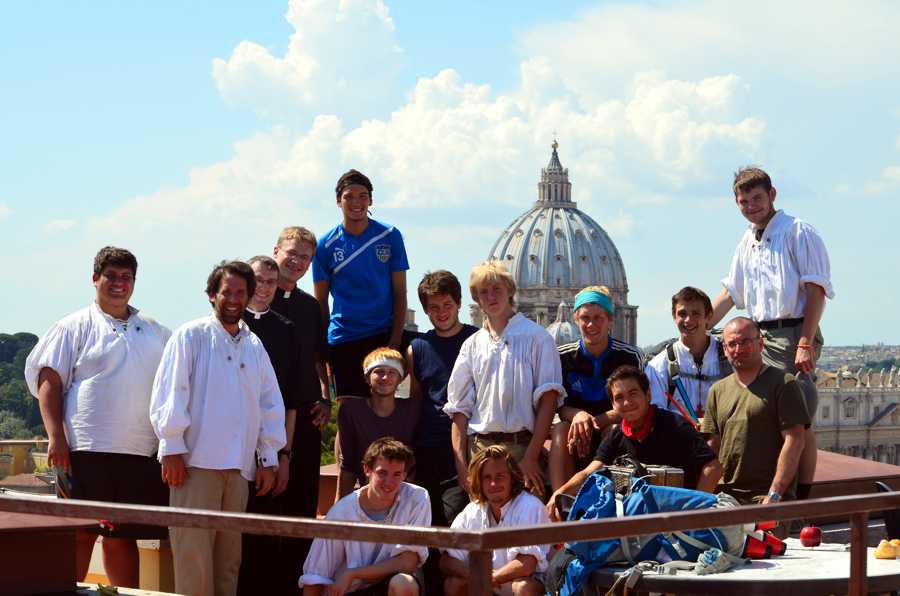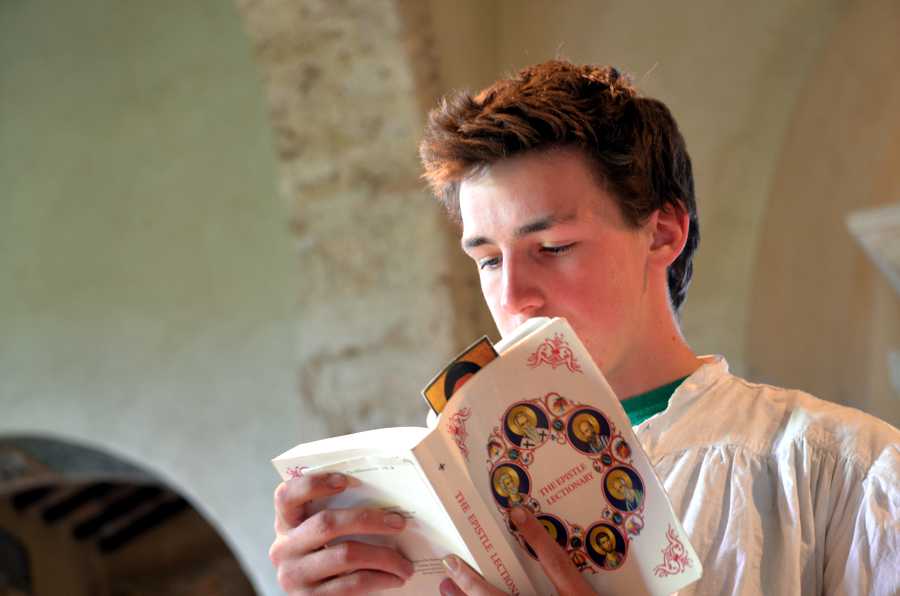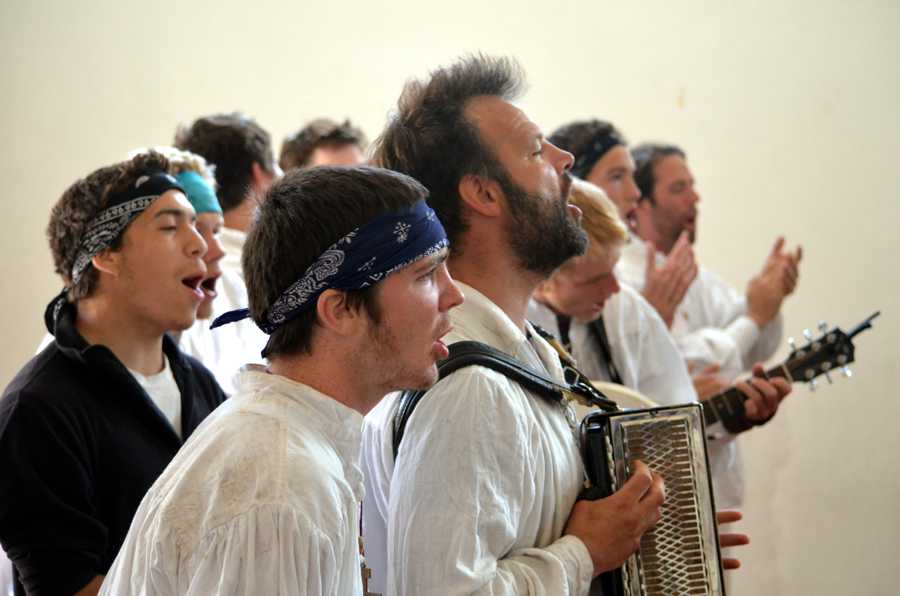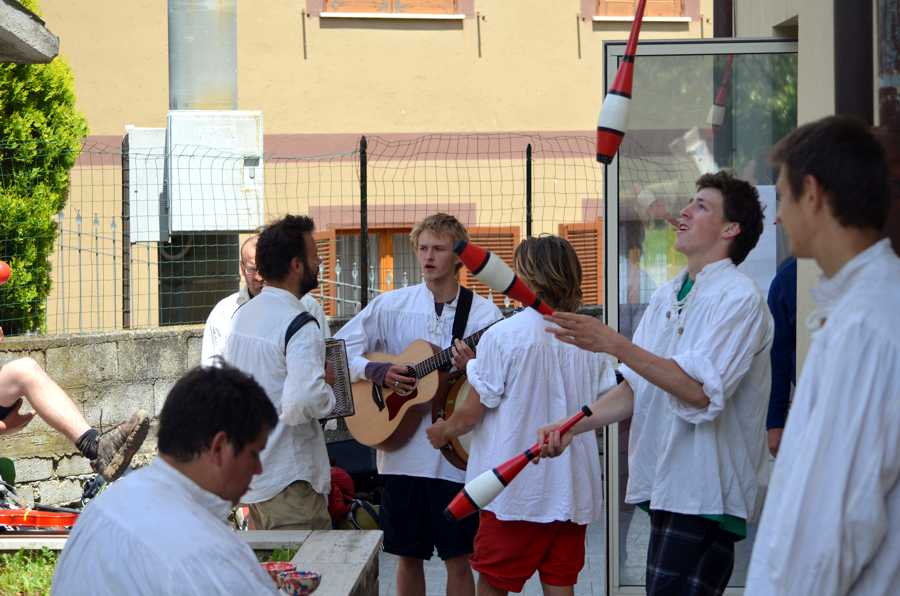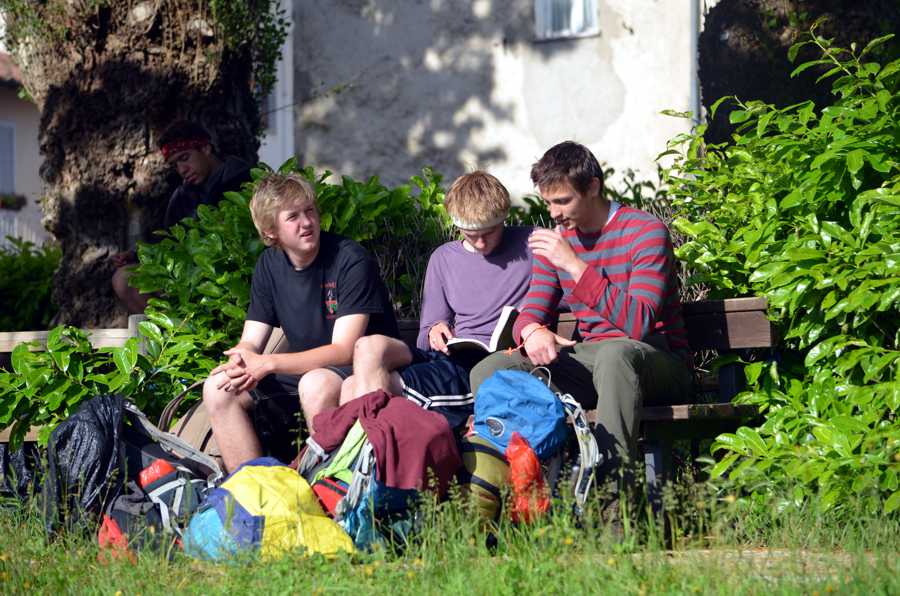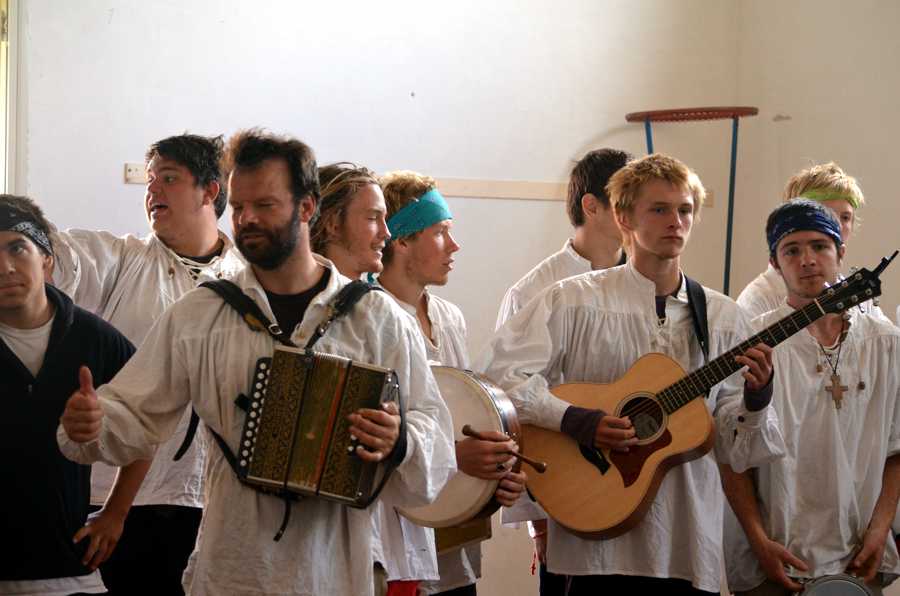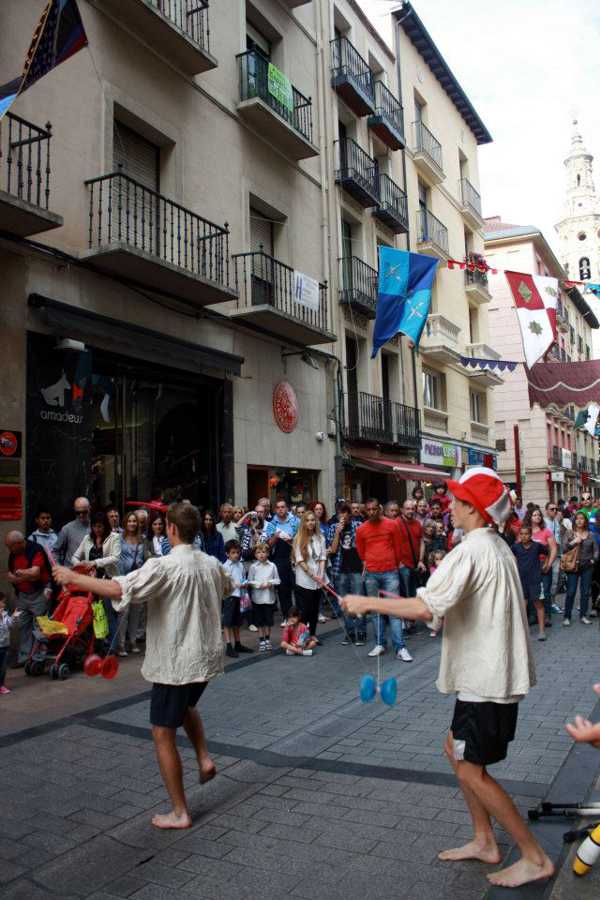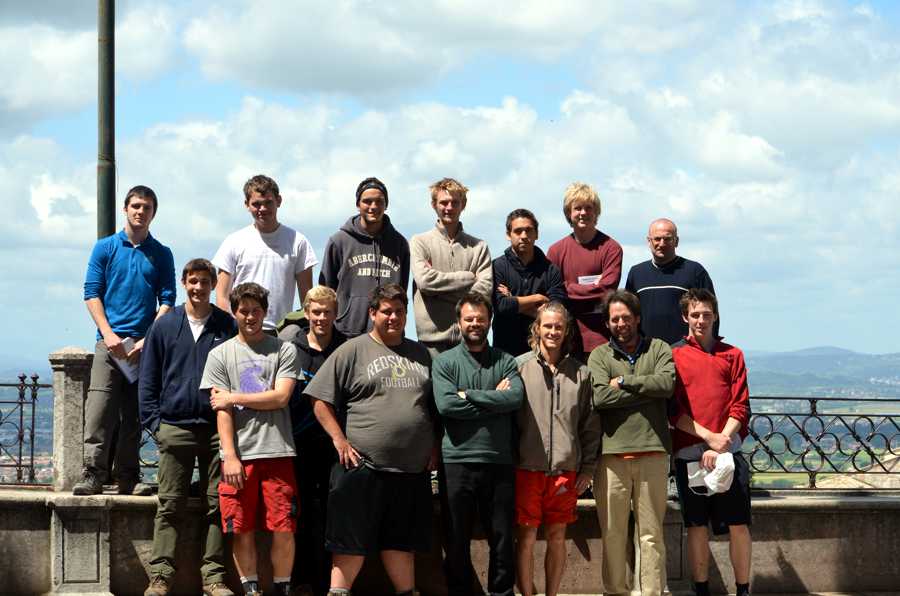On the way I will see all I can of men and things; for anything great and worthy is but an ordinary thing transfigured, and if I am about to venerate a humanity absorbed into the divine, so it behoves me on my journey to it to enter into and delight in the divine which is hidden in everything.
– “The Idea of a Pilgrimage” by Hilaire Belloc
Dear Friends,
We were one day from our destination – Rome. We had been walking for three weeks starting out in the beautiful mountaintop village of Cortona, passing through Gubbio, Assisi, Spoleto, Rieti, and countless other cities, towns and villages, on paths through forests, mountains, and pastures. We were nearing the end of the Cammino di San Francesco or ‘Way of Saint Francis’, a path retracing the journey made by the Saint when he walked from Assisi to Rome to gain approval from the Pope for his fledgling order.
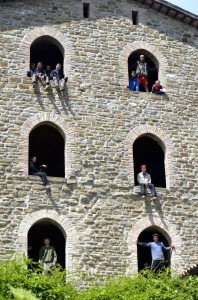 Our plan had been to go another 15 kilometers before stopping but the path led us to a huge open field and then simply abandoned us. There was no indication of where to go next and it was about 10:30 at night and getting dark, so we flagged down a car to help us find the path. After explaining our predicament to the kind Italian lady who stopped to help us, she looked at us for a while in astonishment and then exclaimed, “We don’t do this here! We don’t walk 500 kilometers without money! We don’t sleep by the side of the road! We don’t do this here!” I laughed because her words – both a rebuke and a declaration of wonder – were not far from the sort of words I would put to myself at some point in every one of these pilgrimages. What the heck are we doing here? This is crazy! Why do we do this every year?
Our plan had been to go another 15 kilometers before stopping but the path led us to a huge open field and then simply abandoned us. There was no indication of where to go next and it was about 10:30 at night and getting dark, so we flagged down a car to help us find the path. After explaining our predicament to the kind Italian lady who stopped to help us, she looked at us for a while in astonishment and then exclaimed, “We don’t do this here! We don’t walk 500 kilometers without money! We don’t sleep by the side of the road! We don’t do this here!” I laughed because her words – both a rebuke and a declaration of wonder – were not far from the sort of words I would put to myself at some point in every one of these pilgrimages. What the heck are we doing here? This is crazy! Why do we do this every year?
This year I was fortunate to come across an essay by Hilaire Belloc in Hills and the Sea called ‘The Idea of a Pilgrimage’ that helped me come to a better articulation of what our pilgrimage is and perhaps why we do it. In one extraordinary sentence, he writes: Thus I may go upon a pilgrimage with no pack and nothing but a stick and my clothes, but I must get myself into the frame of mind that carries an invisible burden, an eye for happiness and suffering, humor, gladness at the beauty of the world, a readiness for the raising of the heart at the vastness of a wide view, and especially a readiness to give multitudinous praise to God; for a man that goes on pilgrimage does best if he starts out (I say it of his temporal object only) with the heart of a wanderer, eager for the world as it is, forgetful of maps and descriptions, but hungry for real colors and men and the seeming of things.
A pilgrimage is an adventure in the true sense of the word. As Hilaire Belloc explains, it is a coming toward (ad-ventus) or coming into contact with that which we often fail to see. Faith in God begins with the experience of the wonder of creation – the curious forms of our fellow man and of every natural thing. We carry no money with us so that we can experience a bit of hardship, a bit of hunger, so that in our bit of emptiness we can taste the miracles of bread and meat and cheese. Not having and then having, being poor and then being rich, we begin to feel and know that God is the giver of all good things. We learn for the first time the taste of cheese.
Our particular pilgrimage is built on two pillars both planted on earth and reaching like giant trees into heaven. The first is the divine liturgy offered every day no matter what our condition or situation by our indomitable pilgrim-priest Father Christopher Manuele. Seek ye first the kingdom of God and all things shall be added unto you. The second springs from the first: it is the particular gift that we as a troupe composed of teachers and students from Saint Gregory’s Academy know how to bring forth with a vengeance – a juggling show rollicking, roaring, bounding with song. I was delighted every day, playing before Him at all times, playing in the world: and my delights were to be with the children of men. We begin each day knowing only these two things: that we shall offer ourselves and all things to God in the celebration of the divine liturgy and that we will offer ourselves again with all that we are to each other and to our fellow man in a juggling show – and probably in several. We come into each town large or small and set up quickly because, pious though we are and filled with the desire to explode with joyous song on the unsuspecting Italians going about their business, we also strongly intend to eat.
After the show in Rieti – a recording of which (not the real thing) we have included in this missive – the man behind the recording asked what we would like to call our show so that we could find it when he posted it on YouTube. As we stood there for a few moments trying to think of something clever and appropriate, Michael Schiller, one of our seniors, suggested something more than clever and appropriate: “Clowns of God in Rieti.” I hope we are not being too bold in thinking ourselves worthy of the title, Clowns of God. We know that we are not singular men, not heroes, not the measure of Achilles or Charlemagne, certainly not of Saint Francis or any of his merry band that he called the jongleurs de Dieu. We are clowns and fools though, who know – because we have experienced it – that we can do something truly great and beautiful, something that transcends and transfigures our ordinary selves. We can walk with God in poverty and complete confidence and we can juggle and sing to friends and strangers with near perfect abandon. The experience of joy our show brings forth is testament to the presence of God in our midst. We are clowns of God and jugglers of God because truly our juggling, our music, our clowning really does present God on each market place and street corner.
This school year Saint Gregory’s Academy will make a new beginning as Gregory the Great Academy, temporarily located at Chestnut Grove in the Poconos. As a school we are on pilgrimage. As in play so in life. Just as we set forth in the spring on our Italian pilgrimage with no money but with the intention to praise God and make God present to men, so we are setting forth as a school to do the same. We have set out walking without knowing where we shall end up, without knowing if we have the funds even for this school year. But we trust in God first of all and we trust in the knowledge that we know how to put on a damn good show. And finally, we trust in our friends who have learned to recognize something good when they see it. We are relying on you to help us continue the great tradition of education begun 20 years ago by the glorious fools who started us all out on this goodly path – Alan Hicks, Howard Clark, and their merry band of brothers, of whom you, dear friend, are one.
Please be generous! The show must go on!
In Christ,
Luke Culley
More Pilgrimage Photos and Video
